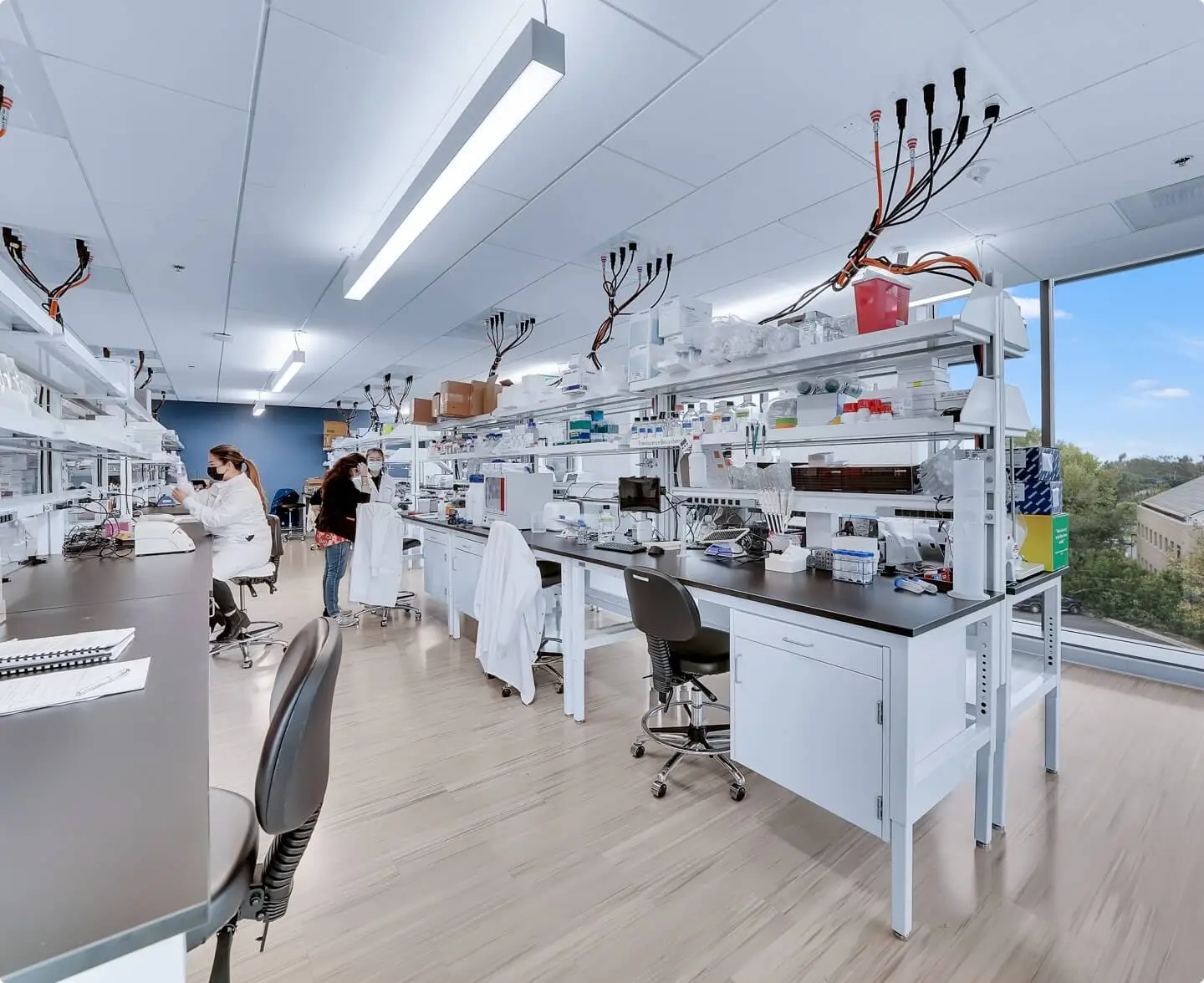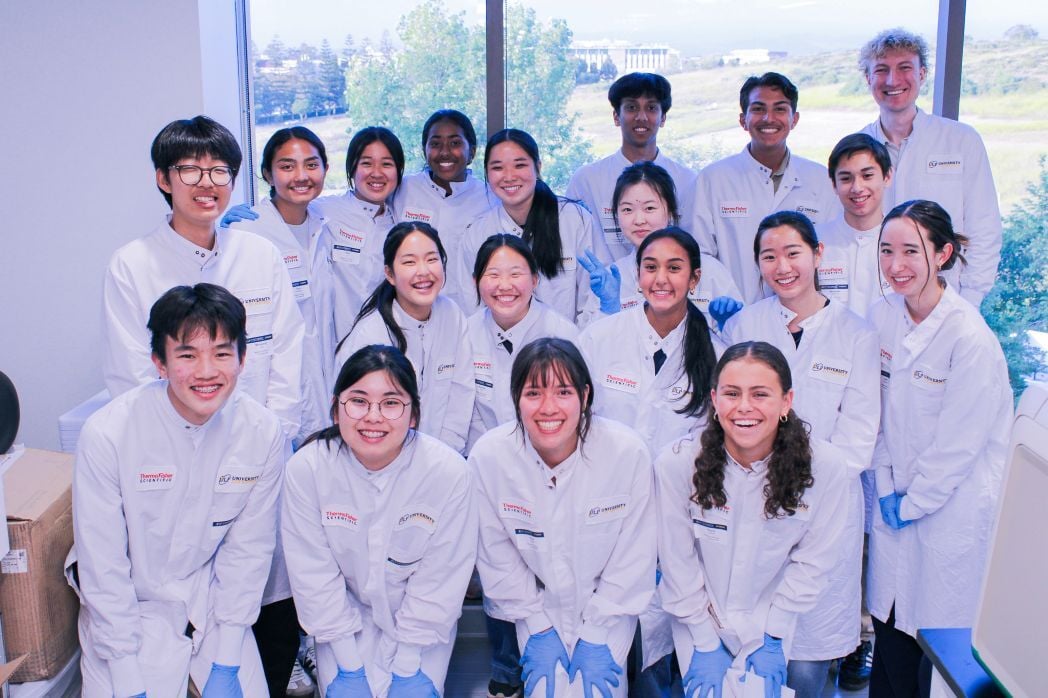Hands-on training in molecular biology techniques performed in research and development, pharmaceutical, and biotechnology laboratories.
Participants will acquire and demonstrate knowledge and skills in bacterial cloning, genomic and plasmid DNA isolation, PCR, restriction digest, and gel electrophoresis as well as experimental design and execution. Students will learn classic techniques as well as cutting-edge technologies such as CRISPR and TcBuster™ to edit cellular genome.
The acquired skills and knowledge are relevant to those who aspire to pursue careers in biotech or to gain a strong foundation in cellular and molecular biology.
Prerequisite: Students must be 14 years or older and have completed high school biology.
Tuition is $1,850 and includes all laboratory materials.

Students can choose between three cohorts: Monday, Tuesday, or Wednesday cohort.
MONDAY COHORT
Monday from June 8, 2026 - August 3, 2026 | 5:00 PM - 8:00 PM
Enrollment is open on a first-come, first-served basis until capacity is reached or until applications close on June 2, 2026.
TUESDAY COHORT
Tuesday from June 9, 2026 - August 4, 2026 | 5:00 PM - 8:00 PM
Enrollment is open on a first-come, first-served basis until capacity is reached or until applications close on June 3, 2026.
WEDNESDAY COHORT
Wednesday from June 10, 2026 - August 5, 2026 | 5:00 PM - 8:00 PM
Enrollment is open on a first-come, first-served basis until capacity is reached or until applications close on June 4, 2026.
ROCK the Science Showcase: Wednesday, August 12, 2026, from 4:00 PM - 7:30 PM.
Location: ULP at Soka | 1 University Drive, Aliso Viejo, CA 92656


Examine CRISPR's global impact on society, including diagnostics, therapeutics, and personalized medicine.
Research methodology training with a focus on methods in molecular biology alongside industry mentorship and advisory.
Gain hands-on technical training in molecular biology lab techniques so you have relevant 1st experience on your resume.
Guided independent research with mentors will provide a solid foundation for a future in the life sciences from biotech research and development to medical careers.

All students are considered for need-based scholarships at the time of application. There is no additional application. ULP will notify scholarship recipients at the time of acceptance.
Tuition is $1,850 and includes all laboratory materials.

University Lab Partners at Soka University
1 University Drive, Aliso Viejo, CA 92656
All students are considered for need-based scholarships at the time of application. There is no additional application. ULP will notify scholarship recipients at the time of acceptance.
The tuition is $1,850 and includes all laboratory materials.
You may have already identified that hands-on learning of molecular biology lab techniques will boost your academic success and prepare you for a STEM career. When it comes to molecular cell biology and the hands-on lab training participants will acquire and demonstrate knowledge and skills in bacterial cloning, genomic and plasmid DNA isolation, PCR, restriction digest, and gel electrophoresis as well as experimental design and execution. Students will use classic techniques as well as use cutting-edge technologies such as CRISPR and TcBuster™ to edit cellular genome.
Hands-on research experience with bacterial cultures, transformations, and plasmid modification
Discover how molecular biology techniques are used in biotech companies
Learn cutting-edge life science research trends
Utilize state-of-the-art research instrumentation
Gain knowledge about emerging life science careers
Gain a competitive advantage when applying for college/internship and entering the workforce
Genome engineering research is also referred to as genetic engineering or genetic modification. Using techniques from molecular biology, genome engineering modifies or alters the genetic makeup or DNA of an organism. Genetic modification can include changing, deleting, or adding a new segment of DNA to an existing strand. CRISPR gene editing, for example, is used to remove DNA strands identified as disease markers, allowing the gene to repair itself and replace the removed markers.
For students interested in STEM careers in medicine or pharmaceutical research, learning molecular biology lab techniques such as genome engineering can provide a solid foundation for the work to come in one’s academic and professional work.
Participants must be 14 years or older and have completed high school biology.
You can use the Yellow button at top of the page to apply.
ULP will be reviewing applications and sending email notifications of acceptance on a rolling basis.
CRISPR stands for Clustered Regularly Interspaced Short Palindromic Repeats and is a highly precise gene editing tool that has only been around for a decade. This tool is used by research scientists to selectively modify the DNA of living organisms. CRISPR was adapted for use in the laboratory from naturally occurring genome editing systems found in bacteria. Bacteria use these systems to fight against invasive DNA that can be delivered by viruses.
Click here to view the Education Team.
© University Lab Partners 2026 | Privacy Policy | Contact Us